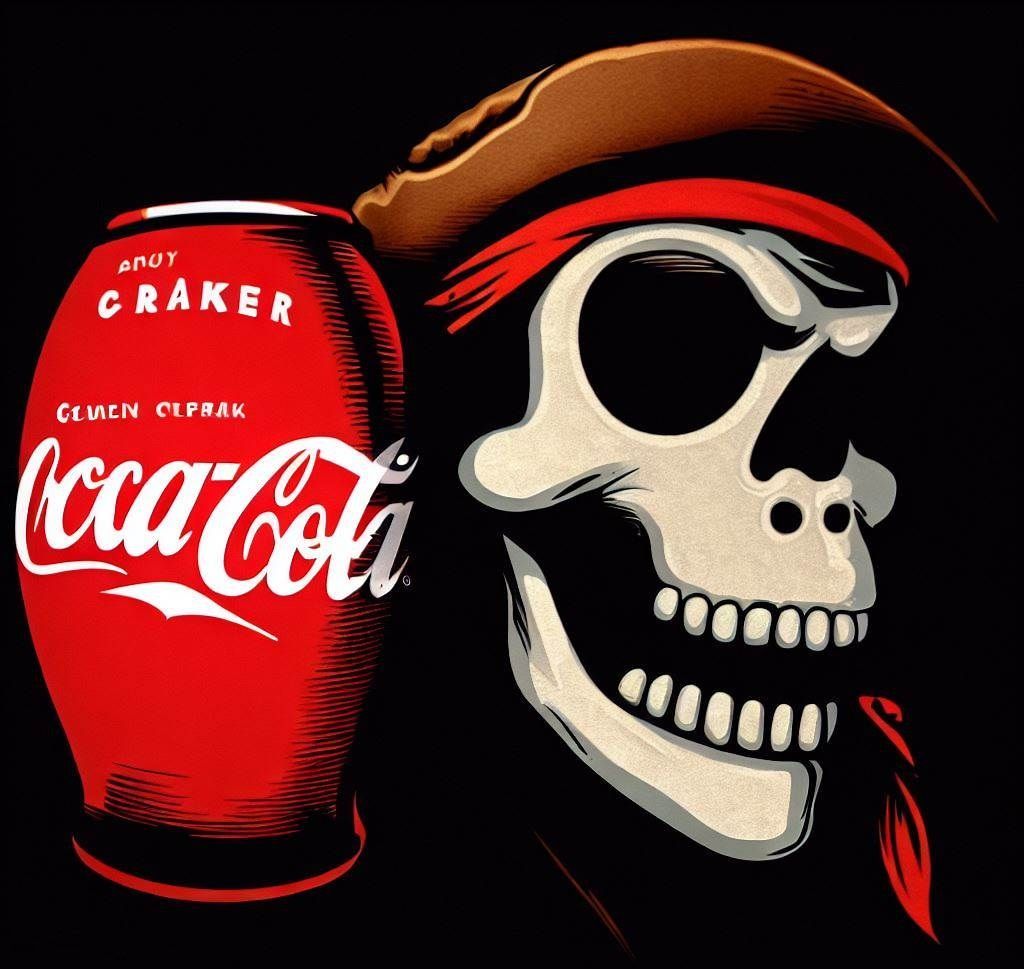'Cloned Cola' - Counterfeit Coca-Cola Found in Mexico
Mexican officials broke up a clandestine manufacturing plant in Mexico City

Authorities in Mexico City say they have discovered a false Coca-Cola clandestine factory in the Santa Martha Acatitla neighborhood of the Iztapalapa mayor's office.
During the search, hundreds of boxes of possibly cloned colas were found. In addition, vehicles and a large number of plastic containers and glass bottles were seized to be refilled.
The "pirate" Coca-Cola was being sold at mobile food stalls in popular neighborhoods in the Valley of Mexico, such as the central zone of Mexico City, the Central de Abastos de Mexico City, Nezahualcóyotl and Chalco. There have been no reports that it was found in the U.S.
The network that worked in the manufacture of pirate soft drinks consisted of around 10 people. They washed bottles, bottled, transported, sealed and took care of the buildings where they had cloned or adulterated drinks. The soft drink caps were obtained by garbage collectors.
The refilled soft drink box was sold for a price of about US$11 (200 pesos) and it is estimated that between 50 and 60 boxes were sold per day.
The material seized on the property was taken along with the detained individuals to the Public Ministry office.
The consumption of pirated Coca-Cola could cause serious illnesses
One of the main dangers of consuming pirated soft drinks is the lack of control over the quality of the water used to make them. In many cases, tap water is used that could be contaminated with bacteria and other pathogens that can cause illness. These microorganisms can cause a variety of conditions, including diarrhea, dysentery, and cholera.
Diarrhea is a common disorder that affects many people around the world. However, when caused by bacteria or viruses present in the contaminated water used to make pirated drinks, it can be very dangerous. Diarrhea can cause dehydration, which can be life-threatening, especially if not treated in time. The loss of fluids and electrolytes, which occur during bouts of diarrhea, can lead to severe dehydration that can lead to death.
Dysentery is another disease that can be caused by drinking pirated soft drinks. This disease, which is caused by bacteria, can cause bloody diarrhea, abdominal pain, and fever. If not treated properly, dysentery can be deadly. The bacterium that causes dysentery is easily spread through contaminated water, making pirated drinks a health risk.
Cholera is a very serious infectious disease that can be caused by ingesting water contaminated with the Vibrio cholerae bacterium. This disease causes watery diarrhea and can lead to severe dehydration that can lead to death. Cholera is one of the world's deadliest diseases and is especially dangerous in areas where there is no access to clean drinking water and proper sanitation.
In addition, pirate soda can cause other serious health problems. For example, these products often contain high levels of sugar, which can lead to the onset of diabetes and other metabolic disorders. Also, many pirate soft drinks contain artificial sweeteners that can be harmful to your health.
Finally, it should be noted that the use of low-quality ingredients in the manufacture of pirate soft drinks can have a negative impact on the environment. The chemicals used to produce these drinks can contaminate water and soil, which can harm local ecosystems. In addition, the production of pirated drinks is often carried out in precarious conditions and without adequate safety and hygiene measures, which can endanger the lives of workers.
Therefore, it is important to be vigilant and buy products from trusted places, preferably in factory-sealed containers. The sale of counterfeit products not only puts the health of consumers at risk, but also affects the economy and employment of companies that are engaged in the production and distribution of genuine products.
